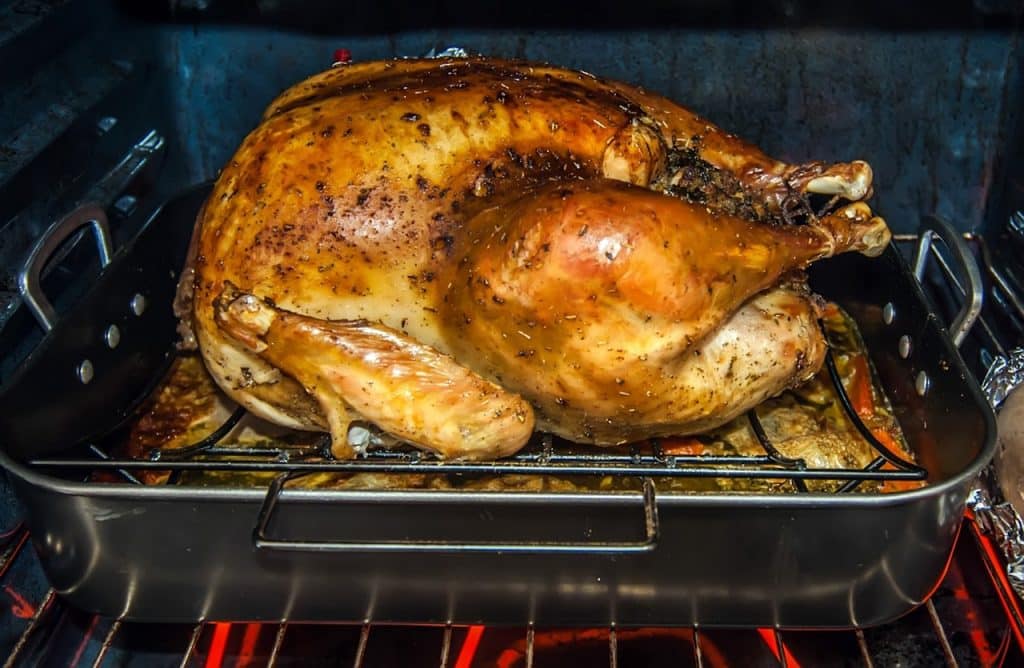Can Dogs Eat Turkey? A Vet’s Opinion

Turkey is low in calories and fat, but can you feed Turkey to your dog?
Turkey may be fed to dogs, but it must be adequately prepared and given in moderation. Commercial dog meals frequently contain turkey since it is a rich source of protein.
Benefits Of Turkey For Dogs
Turkey should be introduced to your dog gradually and in tiny amounts, as with any new meal, to ensure it is tolerated. Before making any significant dietary changes for your dog, always check with your vet, especially if your dog has any underlying medical issues.
- High-quality protein source: Turkey is a high-quality protein source because it has all the essential amino acids that dogs require for tissue repair, immune system support, and the preservation of muscular mass. Turkey is lower in saturated fat and cholesterol than other protein sources, such as chicken.
- High in nutrients: Turkey is a beautiful source of protein and essential vitamins and minerals. For instance, turkey has significant amounts of vitamin B6, crucial for brain health and protein metabolism. Moreover, it is an excellent source of selenium, which has antioxidant characteristics that can help prevent cellular damage, and niacin, which supports a healthy neurological system.
- Low in fat: Turkey is a significant source of protein, but it also has a low-fat content, especially if the skin is removed. While extra fat can cause obesity and other health problems, this may be helpful for dogs who need to lose or keep their weight within a healthy range.
- Turkey is a highly digestible protein source, making it simple for canines to digest and assimilate the nutrients. Dogs with sensitive stomachs or digestive problems may find it difficult to digest other protein sources like beef or pig, which can be very helpful for them.
- Turkey is not a frequently allergenic protein source, making it an excellent choice for dogs with food allergies or sensitivities. But it’s crucial to introduce new meals gradually and with a veterinarian’s approval if your dog has a history of food allergies or intolerances.
- Turkey is rich in omega-3 and omega-6 fatty acids, crucial for keeping healthy skin and fur. This promotes healthy skin and hair. These fatty acids support a glossy, lustrous coat, prevent dryness and itching, and help skin retain flexibility.
- Improves immune system: Turkey is an excellent source of zinc, a mineral necessary for healthy immunity. White blood cells and antibodies are produced with zinc, which can aid your dog’s body in warding off illnesses and infections.
- Blood sugar regulation: Turkey includes the hormone glucagon, which aids in controlling blood sugar levels. Dogs with diabetes or other conditions involving blood sugar may benefit from this.
- Tryptophan and selenium, two naturally occurring anti-inflammatory substances found in turkey, may help decrease inflammation. This may help dogs that have arthritis or other inflammatory diseases.
- Adding turkey to your dog’s food may help minimize boredom and boost overall nutrition by adding variety and balance. To ensure that your dog gets all of the vital amino acids and minerals they require, giving a range of protein sources is crucial.
Overall, turkey may be a nutritious supplement to a dog’s diet, but it must be given in moderation and cooked correctly. Be careful to check your dog’s weight and general health frequently, and always get advice from your veterinarian before making any significant dietary changes.

How To Safely Give Turkey To Dogs?
To feed your dog turkey safely, abide by these rules:
- Cook it thoroughly: Only give your dog cooked turkey that has been adequately cooked. Raw or undercooked Turkey may carry dangerous germs like Salmonella, which can make dogs unwell.
- Turkey’s skin should be removed since it contains a lot of fat and may be challenging for dogs to digest. To avoid stomach difficulties, remove the skin off the turkey before giving it to your dog.
- Steer clear of bones: Turkey’s bones can shatter, posing significant gastrointestinal risks to canines and choking dangers. When giving your dog the turkey, could you remove all its bones?
- Turkey may be a nutritious supplement to a dog’s diet, but it should only be in moderation. If your dog overeats turkey, it may experience intestinal problems. Treats and table scraps shouldn’t comprise more than 10% of your dog’s daily calorie intake, on average.
- Gradually introduce it: If your dog has never eaten turkey, acclimatize them to it gradually. Start slowly and watch for any indications of digestive disturbance in your dog, such as vomiting or diarrhea. You can progressively increase the turkey dosage if your dog tolerates it well.
- Contact your vet: Before giving your dog turkey, as with any new food or dietary change, it’s crucial to seek advice from your vet. Based on your dog’s age, weight, and general health, they may assist you in determining how much turkey is suitable for them.
You may safely feed turkey to your dog and give them a pleasant and healthy treat according to these rules.
Will Turkey Make A Dog Sick?
When prepared correctly and in moderation, turkey is generally a safe and healthful diet for dogs. But, if dogs consume too much turkey or other protein, they could develop digestive issues like vomiting or diarrhea. Also, giving your dog raw or undercooked turkey might be risky since it may contain hazardous germs like Salmonella, which can make dogs sick. To stop the spread of hazardous bacteria, you must ensure that any turkey you give your dog is cooked thoroughly and use proper food handling techniques.
If your dog has never consumed turkey, it is best to gradually introduce it to their diet and watch them closely for any indications of gastric trouble. When introducing new foods to your dog’s diet, it’s vital to check with your veterinarian whether your dog has a history of food allergies or intolerances. Overall, turkey may be a nutritious supplement to a dog’s diet, but it must be given in moderation and cooked correctly. Ask your veterinarian if you are still deciding whether to give turkey to your dog.

Vet’s Summary
Turkey is an excellent source of protein, which is necessary for dogs’ muscular growth and repair. It is a healthy choice for dogs that need to lose or maintain a healthy weight because it is low in fat and calories. The vitamin and mineral content of turkey, particularly the B vitamins, zinc, and selenium, can improve immunological function, encourage healthy skin and fur, and lessen inflammation in the body. Moreover, turkey includes natural prebiotics like inulin, which can support healthy digestion by feeding the beneficial bacteria in a dog’s gut. On the other hand, live bacteria known as probiotics can help balance the gut microbiota and enhance canine digestive health.
You may give your dog turkey to get the nutrients necessary for their general health and welfare, including their digestive system. In addition, the natural prebiotics included in turkey can encourage the development of good probiotic bacteria in your dog’s digestive system and aid in promoting a balanced gut microbiota. Turkey may be a nutritious supplement to a dog’s diet, but it should be sparingly and cooked correctly to ensure it is secure and well-tolerated. See your veterinarian for advice if you are still deciding whether to give your dog turkey or any other food.
Videos To Watch
If you want an answer to your question ‘can dogs eat turkey,’ well check out these videos to find out:






